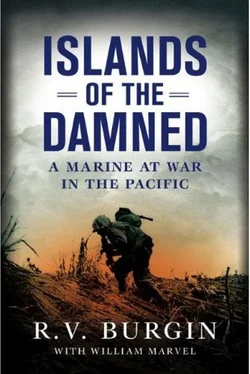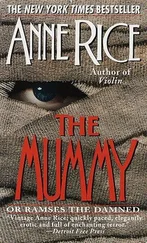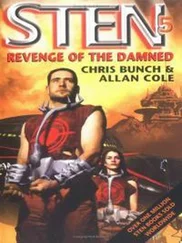It certainly hadn’t turned into any bon voyage.
I had witnessed what a typhoon could do the week before on Okinawa, when a storm parked a ship on dry land, practically at the doorstep of my tent. That morning I went out and walked around. It looked like a good old Texas tornado had passed through. Two-byfours were driven slantwise into the ground, trees uprooted and tipped over, roofs peeled away in ragged strips. The transport that was to take the Fifth Marines to China had sailed out of the harbor to weather the typhoon at sea, rather than risk being driven aground.
Just before I left the island I hooked up with another Texan, Ernest Schelgren, a platoon sergeant in the Eleventh Artillery who was also awaiting shipment home. He was from a farm and I was from a farm, and we hit it off. On October 16 we boarded the USS Lavaca together, looking forward to calm seas and an uneventful voyage. A few days out a typhoon caught us.
The Lavaca was an attack transport, built just a few years before but already a bucket of rust, a real tub. A couple days out I got assigned to guard duty on deck for four hours. As we watched clouds pile up across our path, the skipper came on the loudspeaker warning the crew to batten down the hatches. Everyone was ordered to wear life jackets and to stay below. Except those of us unlucky enough to be on watch.
Topside, I clipped on to the fore and aft line, a rope three or four inches thick that ran from the bow to the stern. It was the only thing you could hang on to.
The wind strummed the wires and the Lavaca creaked and groaned. Spray washed over the deck, and, as we got deeper into the storm, raging rivers of foam five and six feet deep. A crewman said the waves were fifty feet high, and I believed every word. They were taller than the ship. The Lavaca would climb up one side of a wave, seeming to take forever. Then it would tip, slide down the other side and start the long climb up again. It was a little like fighting across the ridges and valleys of Okinawa.
When I got below after my watch, the bunks were swinging against the sway of the ship. In bed at last, I adjusted my arms and legs, stretched out and closed my eyes. Maybe I even drifted off to sleep for a minute or two. Suddenly there was a roaring grind like metal being torn from metal, and a bang! I bolted up, wide-awake. We were next to the ship’s galley and I could guess what had happened. In all the tossing and heaving, a stove had torn loose from its moorings and come sliding across the floor and slammed into the bulkhead. Now with a complaining screech it started sliding back the other way. Canteens and canteen cups, shaving kits and mess kits were clattering on the deck, tumbling off the overhead beams where owners had left them for safekeeping. In the semidarkness there were groans and shouts of alarm.
I thought, Well, it’d be a helluva time to have your ship go under and drown, on your way home. Then I thought, I’ll just lie here and I’ll find out right quick if we’re still afloat or not. The ship went up, then it came down. Then it went up again, each time about fifty feet, and it came down. I decided, Okay, we’re still afloat.
So I turned over and went to sleep.
The storm went on for seventeen hours, during which nobody moved around much. A lot of the guys got seasick, which made the smell in the hold even worse. I didn’t get seasick but a few days after we passed through the storm, my chills and fevers returned. I was sent to sick bay with malaria.
After three weeks at sea we sailed past the Golden Gate Bridge and the Oakland Bay Bridge one morning and docked in San Francisco. None of us went ashore. Before the end of the day we were on our way again, down the coast to San Diego.
I was feeling reasonably like a human being again. The Red Cross met us at the dock with paper cups of orange juice and half pints of milk. Trucks were waiting, engines running. The Navy had taken over Camp Elliott, where I had departed for the war thirty-two months before, so we were driven to Camp Pendleton. I’ll never forget the first night in the barracks. The weather wasn’t freezing, it wasn’t even particularly cold. But I was the coldest I’d ever been in my life. After so many months in the southwest Pacific I guess my blood was thin.
I had an upper bunk. There was a mattress, a pillow, a sheet and one thin blanket. Between the mattress and the springs was a cloth pad, a mattress protector. After a few hours, I climbed out of bed and put my clothes on. I crawled back under that blanket but I was still freezing to death. Literally shaking. I thought, To hell with this, and I pulled the mattress over me, and that’s where I spent the night, sleeping on that mattress pad. I never did get warm until I got up next morning.
While we waited to be mustered out, Ernest Schelgren and I hung out together. His wife, Barbara, flew in from Dallas to meet him and we became good friends, and remained so for many years after. My sister Ila was sending me money so I was able to go out on the town whenever I got liberty.
It took the Marines almost a month to return me to civilian life. I turned in my equipment, filled out lots of papers and sat through a final interview. I was surprised that the interviewer didn’t ask whether I had been wounded or whether I had any medical problems. When it was over the Marines paid for a train ticket back to Texas. I was in a hurry and I flew home instead.
I moved in with my sister Ila in Dallas, then took the train down to spend Christmas with my parents at Jewett. My father had set aside a calf for me, as he did for each of the Burgin children. But I didn’t want to farm. I had seen him work too long and too hard for too little. In a month I returned to Dallas and started looking for a job. I had a pretty good idea of what I wanted to do with my life.
I had already started the paperwork on Okinawa to bring over Florence. Although I had never officially proposed to her, it was always understood between us that we were going to marry after the war. I had written to her father asking for her hand. She told me once in Melbourne that he threatened to shoot “that Yank” if I came around trying to date his daughter. We had a good laugh over that. He didn’t even own a gun. Fortunately, he sent his permission.
I listed her as my fiancée, which meant she had to wait in line behind all the wives and the wives with children before she could come to the United States. Once the paperwork was approved I had to post $500 with the government. This was a technicality, in case a fiancée arrived in the United States and the couple ended up not getting married, or they got divorced quickly. Then the money would go to the young woman to pay for her passage home. If the couple married, the government would return the $500.
Neither one of us had any doubts. We longed for the day we would finally be together. I put us on the waiting list for a new refrigerator and started looking for an apartment—not an easy thing to find in the months after the war, when GIs were returning home by the tens of thousands.
I bought a ’39 Plymouth to help me in my job search. Growing up in rural Texas I had admired the mail carriers. I knew both of the rural route carriers who worked out of Jewett. I had been in their homes. They were friendly men and they had decent jobs during the Depression. I always figured that someday I would work for the federal government, because that meant job security and a good retirement plan.
I went to the Veterans Administration to see the contact officer. He was a man named Frank Mallory and he took an interest in my case. I think he took an interest in all the returning vets, because he was that kind of person.
We were sitting in his office talking and I told him I wanted to work for the Post Office. I’d had another bout of malaria and red, itchy fever blisters had spread over my chin and nose. I couldn’t have weighed more than 140 pounds.
Читать дальше











